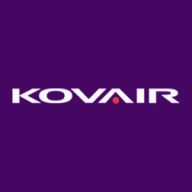

Teradata and Kovair Data Lake compete in data management solutions. Kovair Data Lake demonstrates superior integration capabilities, while Teradata excels in analytical performance and scalability for complex data workloads.
Features: Teradata provides advanced analytics, high scalability, and strong data warehousing capabilities, supporting enterprise-scale operations. Kovair Data Lake offers integration with various data sources and customization options, enhancing its flexibility for diverse environments. Teradata's focus is on analytical power, whereas Kovair emphasizes integration strength.
Ease of Deployment and Customer Service: Teradata's deployment targets large-scale environments and includes comprehensive support that mitigates implementation challenges. Kovair Data Lake allows flexible deployment with faster setup and adaptable customer service tailored to specific needs.
Pricing and ROI: Teradata necessitates a higher initial investment due to its enterprise-level services, often justified by long-term analytical benefits and scalability. Kovair Data Lake, with cost-effective pricing, offers quicker returns and appeals to smaller projects or organizations seeking rapid deployment with moderate investment.


Kovair Data Lake is a central database that comes with SQL server support. This makes it capable of storing data from multiple projects residing in diversified tools used by an organization. Based on organizational needs, the stored data is then segregated by departments or business units. Kovair Data Lake also comes with a very intuitive UI interface for managing and monitoring of the Data Lake.
Many organizations use enterprise data warehouses to meet both operational and reporting needs. However, apart from offering a storage and management facilities, there are certain limitations that organizations continue to face. These are –
- Real-time synchronization of data within a centralized data storage
- Traceability and governance of stored data
- Low-cost storage infrastructure compared to Big Data or Data Warehouse
- Handling of low volume but highly diversified data
- Prescriptive analytics that will aid in taking data-driven decisions and on-time service delivery
Kovair has been a market leader in the domain of data integration with a marquee of clients from networking, semiconductor, telecom, manufacturing, banking and finance. Over the recent years, it has witnessed a shift in focus for organizations using multiple tools and different teams. While Kovair Omnibus provides the support for features like traceability, cross tool reporting, and task-based workflow that is simply not enough! Customers today are looking for central data store where data coming from different tools used in an organization could be accumulated in its native format.
Data Lake presents a low-cost alternative to exploding storage and processing costs of traditional warehouses.
While traditional data warehouses store data in hierarchical format. Data Lake offers a central database repository with a flat architecture for storing the data. This protects the data from unwanted manipulation, enabling businesses to take informed decisions accurately and building a better business-customer relationship.
- Large Data Repository for Central Administration
- Tool Extractors with WS/SQL Communication Support
- Web-based Data Lake Portal
More details - https://www.kovair.com/data-lake/
Teradata is a scalable data analytics platform designed to meet enterprise demands for large-scale data management and processing, focusing on performance, scalability, and security for complex query executions.
As a leading data warehousing solution, Teradata integrates advanced analytics enabling organizations to derive insights from massive datasets. It supports high-volume data workloads with its architecture optimized for analytical queries. Users benefit from its robust scalability, allowing seamless expansion as data grows. Teradata's SQL engine is compatible with a wide range of data types, ensuring flexibility in data analysis. With advanced security measures, it protects sensitive data across various environments, providing peace of mind to users handling critical information.
What are the most important features of Teradata?Teradata is widely used in industries like finance, telecommunications, and healthcare, where data-driven decisions are critical. Companies leverage its robust analytics capabilities to enhance customer experiences, streamline operations, and ensure compliance with regulatory requirements. In these sectors, quick access to data insights can significantly impact competitive advantage.
We monitor all Data Warehouse reviews to prevent fraudulent reviews and keep review quality high. We do not post reviews by company employees or direct competitors. We validate each review for authenticity via cross-reference with LinkedIn, and personal follow-up with the reviewer when necessary.